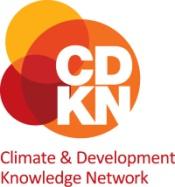
The three Andean cities of La Paz, Bolivia, Lima, Peru, and Quito, Ecuador are witnessing negative climate impacts first hand, particularly among the poorest communities. Greenhouse gas emissions from the cities’ industries, transportation systems, water treatment, sanitation and solid waste and other sectors only contribute to climate change as well as causing localised pollution that reduces quality of life.
Studies have shown that due to climate change, the availability of water resources in La Paz, Quito and Lima is shrinking as Andean glaciers melt. According to some projections, by the year 2025 climate change could limit access to water supplies for 70 percent of those who rely on hydrological resources in the Andean region. The situation is exacerbated by urban migration that increases demand for water.
To combat this problem, the Andean cities carbon and water footprint project was initiated to support and implement local strategies to mitigate the effects of climate change in La Paz, Lima and Quito. The project is assessing carbon and water footprints at local levels and will use study findings to promote actions to reduce carbon emissions and promote better use of resources at municipal level. The project also aims to facilitate the share of knowledge and the promotion of partnerships among key stakeholders from the public and private sectors and society as a whole.
